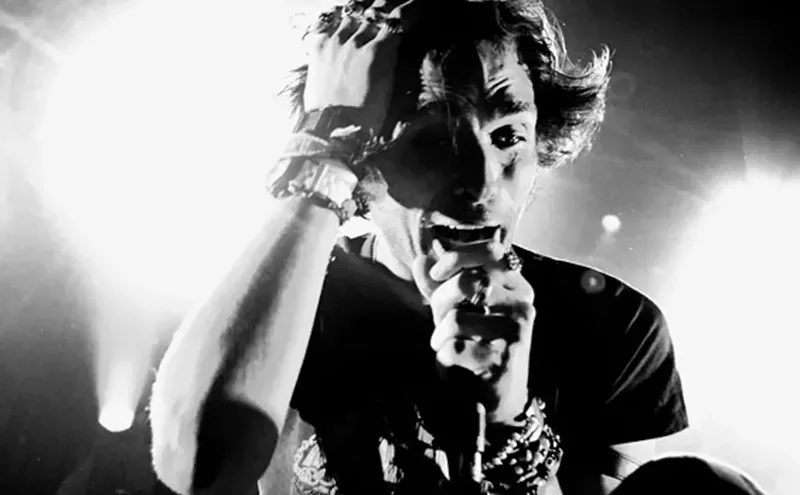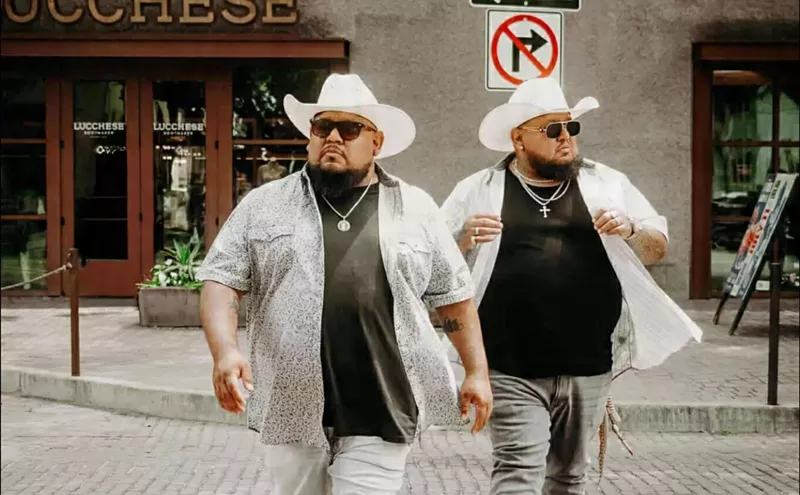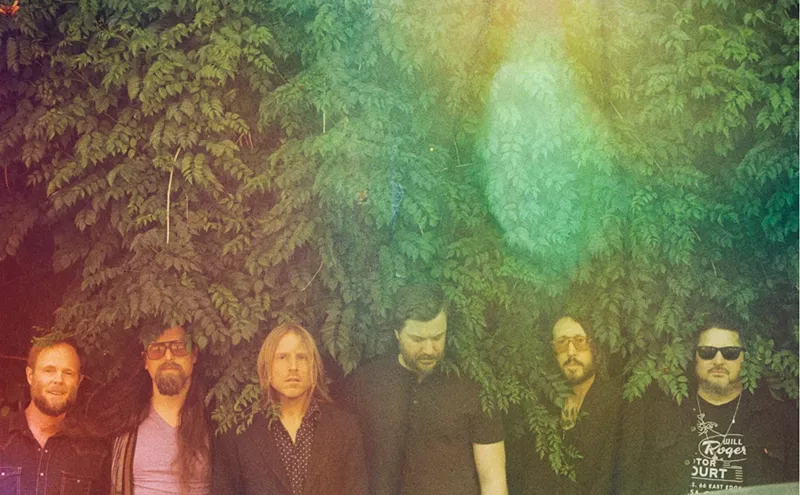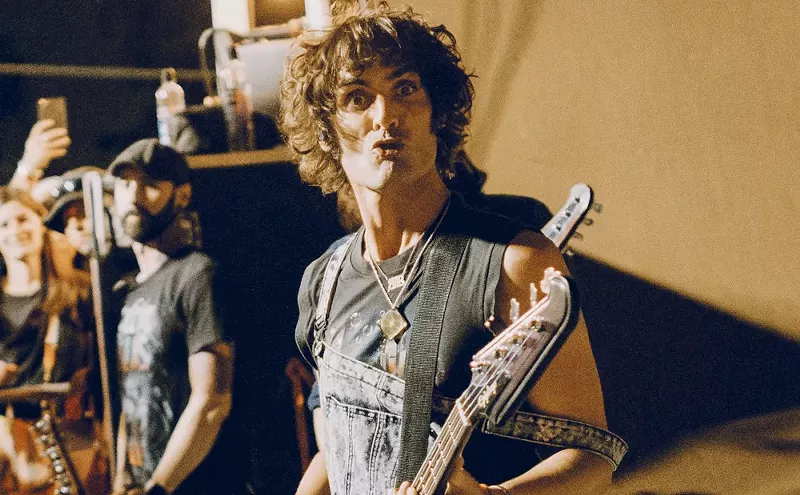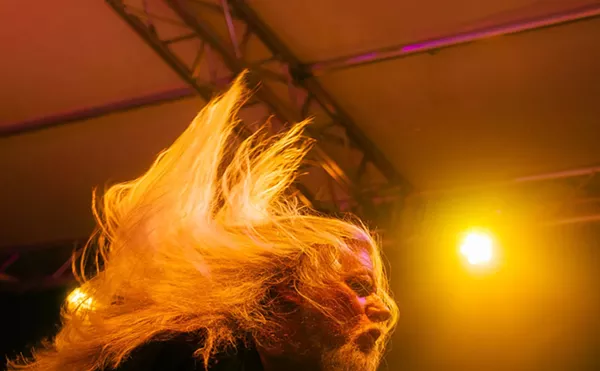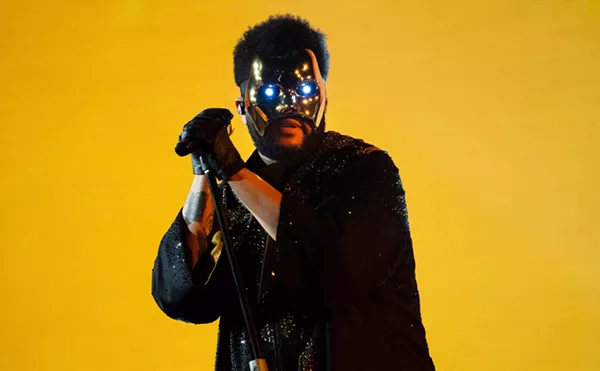It's unavoidable: Eventually, you grow up. Your tastes change. Your priorities shift. Mostly, though? You become tired of the same old, same old. In turn, you want something new. In 2010, that inevitability has hit the local mall-punk scene—and hard, too. No longer featuring a cast of teenage brats looking to become heroes to the Hot Topic set, the prominent North Texas purveyors of snotty, emotive pop tunes are now a few years older and, one assumes, a little wiser as well.
In short: Whether their fans are ready for it, these artists are changing.
The first signs of growth came back in January, when Aledo's Daniel Hunter, formerly of the moniker PlayRadioPlay!, changed his performance name to Analog Rebellion and ditched his Death Cab for Cutie Lite sounds—a sort of pre-Owl City Owl City—in favor of a Secret Machines-indebted straight-ahead rock formula, and an impressive one at that.
This week, with the release of his fourth studio full-length, Night & Day, Dallas' Luis Dubuc, who performs under the stage name The Secret Handshake, is essentially doing the same, albeit while heading in an altogether different direction.
Indeed, Night & Day is a far cry from Dubuc's earlier electro-pop leanings. Gone are the synths that so heavily influenced his earlier work. In their place: a full band, complete with strings and horns—all the ingredients behind, really, the oh-so-righteous Motown sound. Which is exactly what Night & Day boasts: It's a throwback disc on which Dubuc's hook-laden sing-along sound gets a serious makeover in the vein, he says (and not wholly incorrectly), of the Jackson Five.
It's a pop record, and one that, with the right promotion behind it, could find Dubuc, 25, reveling in the same adoration that critical darlings and Motown revivalists such as Mayer Hawthorne and Eli "Paperboy" Reed are enjoying.
For Dubuc, who rolls his eyes when those names are tossed out before him as trendsetters, the transition was a natural one. He was growing tired of his old sound, he says. More important, he wasn't as pleased as he once was when revisiting his back catalog.
"I don't feel like I could show those to other 25-year-olds," he says. "But I can hand this album off to people and be proud of it."
And proud he is: Dubuc practically turns to mush when describing the recording process of Night & Day, which found him in Los Angeles backed by 10 sought-after session musicians and back-up singers and recording onto the very same 16-track Ampex tape machine that had been used in the Motown studios of the '70s. ("You'd look at the machine, and it would say right on there: Motown," Dubuc gushes.) But it was a grueling process, too, one that found Dubuc, for the first time in his musical career, ditching the Auto-Tuned vocals his earlier efforts had been so reliant upon. It took him four weeks, he says, to finally get the vocal tracking right. But the end result was worth the effort, he says.
"I feel like I made a contribution to music with this album," he says. "I honestly feel like I fell into the whole pop/electro thing—mostly because I wasn't in a full band. I didn't have the people together with me to ever pull off something like this."
Now with a full band behind him—including a touring lineup that boasts four backing players rather than his former three-piece roster—Dubuc's offering up something barely recognizable as his, pop sensibilities aside.
"I'm so torn by it," Dubuc says, already familiar with the criticisms long flooding scene rags and his own fan pages since the change in direction was first announced earlier this summer. "Some days I hate it. And others I think it's OK. Why can't music evolve? I can't pretend to be something I'm not any more. Are all my friends growing up? Are we growing up right now? I don't know. I mean, if you look at all the artists in this scene I've been in for all these years, everyone is 18. You burn yourself out. You start hating everybody. I did."
That's where things become problematic for Dubuc and his ilk. He can't completely ignore his past, or those who were fans of it. Like Hunter, Dubuc too considered a name change for his outfit, often toying with the idea of re-imagining his brand as Luis and The Handshakes—a decision he never followed through with and now says he regrets ("I chickened out," he admits). But not doing so was a strategic move, too, affording him the chance to grow musically while not completely ditching his hard-earned fans.
"I want people to take a listen to the record and not judge it based off the name," he says. "But why start over? We can convert the kids to new music, too."
That's been Dubuc's aim over the course of his just-completed month-long national tour. Audiences would arrive at the shows, ready to hear their favorite Secret Handshake songs, only to instead find Dubuc and his bandmates dressed in sweater vests, standing behind podiums, and warning their crowds that every song they'd be performing at these shows were new ones. It was a risk, for sure—even Dubuc admits as much.
"I'd be sort of bummed if I went to a show to see a band and they didn't play any of the songs I knew," he says. "People want their favorite artists to be their favorite artists forever. I prepared everyone and told the band that there was a really good chance that everyone was gonna hate us. But they didn't. The crowds knew what I knew, and we sort of had this thing where we all knew we were doing something important. You could tell that they appreciated it, and that they liked it."
Only once over the course of the tour did Dubuc give in to his fans' requests for older material, giving the song "Summer of '98" a go during an encore performance to a sold-out crowd in Raleigh, North Carolina. But he did so begrudgingly.
Rightfully so, though: As tough a transition as Dubuc's transformation might be, it's also a necessary one. You can't be a kid forever. And, really, that's OK. Sometimes—and Night & Day's joyous offering is actually proof—growing up can be a good thing, even if it's hard to come to terms with.
"I'm not in the pop-punk world any more," Dubuc say, letting loose a tepid sigh. "I'm OK with that. If you're gonna do something easy, where's the fun in that? Being an artist is supposed to be a challenge."



